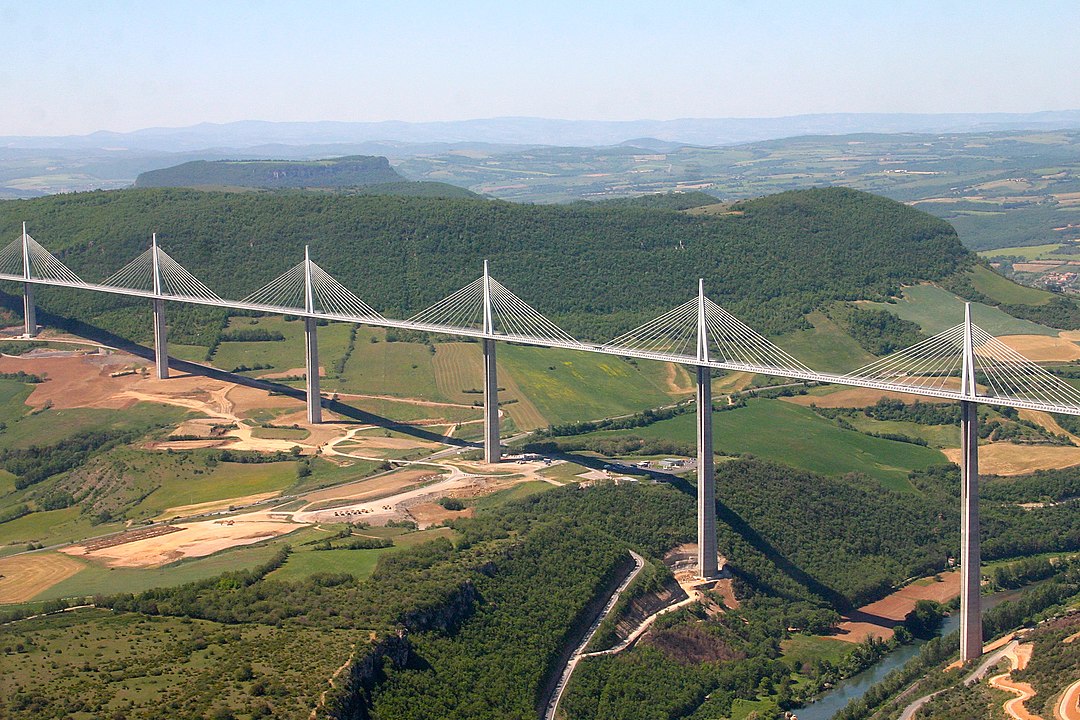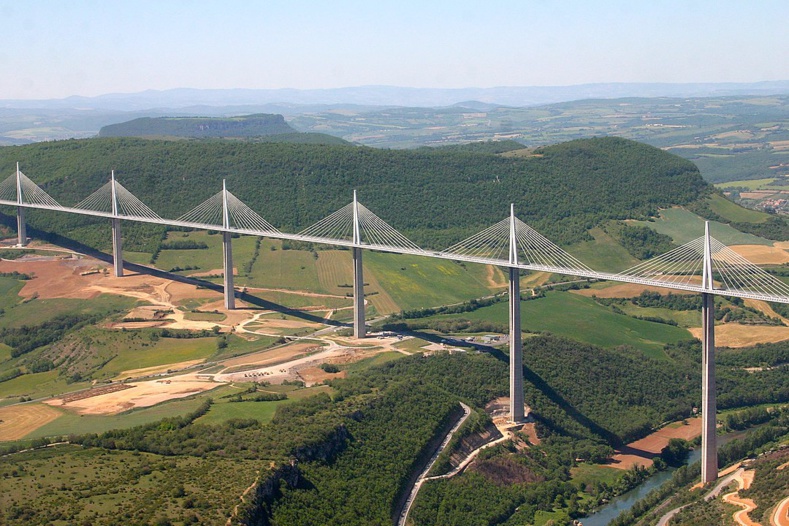The disastrous economic consequences of the COVID-19 pandemic and the subsequent national lockdowns have put unprecedented pressure on governments across the globe. Kickstarting economies through recovery plans and major infrastructure projects is a recognized approach that can lead to enhanced foreign investment, competitiveness and long-term development.
In September 2020, France announced a €100 billion recovery plan known as “France Relance”, which aims to “support businesses, rethink production models, transform infrastructure and invest in training.” The project’s goal is to “drive the economy and create jobs for the future” (Emmanuel Macron), in order to build towards the France of 2030. France has a history of developing expansive infrastructure projects in several sectors, including transport, health, leisure, water and sanitation, often financed using PPPs and European Union grants.
Within the framework of a global pandemic, economic hardship and the need for a quick recovery, could governments look to France for inspiration?
PPPs in France: A Sustainable Motorway Network
For over 15 years, France has led the way in PPP innovation, with the concept of “concession” itself being developed in France. The model involves the awarding of specific infrastructure contracts to private sector entities, giving those companies “the right to operate a specific business within a government's jurisdiction or on another firm's property, subject to particular terms.” The European Commission extolled the virtues of concession contracts in situations where public funds are lacking and private expertise and capital can be mobilised. PPPs account for €100 billion of activity each year in France, and have been particularly effective in land development, notably the French motorway network.
The French motorway network functions on a tolling concession system. The concessionaire companies manage construction, service and maintenance of the network and in return are able to collect a tolling revenue based on the 'user=payer concept'. This system means users shoulder the cost of maintenance and repairs as opposed to the taxpayer, which means tourists and heavy goods vehicles also contribute towards the upkeep of the network. This approach has helped France develop a high quality network without using public funds. Moreover, all financial risk is shouldered by the concessionaire companies.
The French Recovery Plan
Even though the risks are taken on by private companies within the framework of concession agreements, the French State has not hesitated in energetically intervening at the heart of the current crisis by announcing a far-reaching recovery plan. The €100 billion stimulus plan announced in September 2020 is based on three pillars: ecological transition, economic reviving and competitiveness, social and territorial cohesion. The French Minister Delegate for Transport, Jean-Baptiste Djebbari, elaborated in November 2020 during a discussion in the National Assembly on the 2021 budget, stating: “We are implementing a transport policy to the benefit of our territorial projects, at a time when cooperation with local authorities is more crucial than ever.” This statement further underlines the French government’s commitment to economic recovery through land development projects at both national and local levels. Following the announcement of the plan, the forecast for France’s economic recovery following the recession sui generis has slightly improved. The Banque de France had forecasted an economic decline of 10.3% in June 2020, while the “projection stands at -8.7% as of September.”
€40 billion of the overall budget will come from the European Union through a series of grants and loans, and these aim to help “stimulate the French economy while reducing its negative impacts.” Particular attention has therefore been paid to the ecological impact of French infrastructure, with green initiatives and the reduction of the carbon footprint at the heart of the project.
5G in France
In the autumn of 2020, the long-awaited arrival of 5G in France began with an auctioning of 5G radio frequencies to the highest private bidders. According to Arcep, a telecoms regulator, the country’s four largest telecommunications companies - Orange, SFR, Bouygues Telecom and Free - paid a total of €2.786 billion to the French state. The deployment of 5G in France has been decidedly lengthy compared to European competitors, with the CEO of Orange, Stéphane Richard, deploring the fact that it could be “difficult to catch up.” A speeding up of 5G deployment across the country would certainly provide a welcome contribution to the wider infrastructure projects within the framework of the recovery plan.
A Model Worth Trying?
Such an unprecedented global health crisis as the COVID-19 pandemic has left many governments ill-prepared to face the negative economic consequences of national lockdowns. As the French government quickly realised, rebooting the economy through far-reaching long-term infrastructure projects provides a possible path to recovery. Other governments may follow suit. The system is no quick-fix, and requires often speculative commitments from concessionaire companies to projects that can span decades. But in the current climate, governments don’t really have anything to lose and could look to France for an effective model.
In September 2020, France announced a €100 billion recovery plan known as “France Relance”, which aims to “support businesses, rethink production models, transform infrastructure and invest in training.” The project’s goal is to “drive the economy and create jobs for the future” (Emmanuel Macron), in order to build towards the France of 2030. France has a history of developing expansive infrastructure projects in several sectors, including transport, health, leisure, water and sanitation, often financed using PPPs and European Union grants.
Within the framework of a global pandemic, economic hardship and the need for a quick recovery, could governments look to France for inspiration?
PPPs in France: A Sustainable Motorway Network
For over 15 years, France has led the way in PPP innovation, with the concept of “concession” itself being developed in France. The model involves the awarding of specific infrastructure contracts to private sector entities, giving those companies “the right to operate a specific business within a government's jurisdiction or on another firm's property, subject to particular terms.” The European Commission extolled the virtues of concession contracts in situations where public funds are lacking and private expertise and capital can be mobilised. PPPs account for €100 billion of activity each year in France, and have been particularly effective in land development, notably the French motorway network.
The French motorway network functions on a tolling concession system. The concessionaire companies manage construction, service and maintenance of the network and in return are able to collect a tolling revenue based on the 'user=payer concept'. This system means users shoulder the cost of maintenance and repairs as opposed to the taxpayer, which means tourists and heavy goods vehicles also contribute towards the upkeep of the network. This approach has helped France develop a high quality network without using public funds. Moreover, all financial risk is shouldered by the concessionaire companies.
The French Recovery Plan
Even though the risks are taken on by private companies within the framework of concession agreements, the French State has not hesitated in energetically intervening at the heart of the current crisis by announcing a far-reaching recovery plan. The €100 billion stimulus plan announced in September 2020 is based on three pillars: ecological transition, economic reviving and competitiveness, social and territorial cohesion. The French Minister Delegate for Transport, Jean-Baptiste Djebbari, elaborated in November 2020 during a discussion in the National Assembly on the 2021 budget, stating: “We are implementing a transport policy to the benefit of our territorial projects, at a time when cooperation with local authorities is more crucial than ever.” This statement further underlines the French government’s commitment to economic recovery through land development projects at both national and local levels. Following the announcement of the plan, the forecast for France’s economic recovery following the recession sui generis has slightly improved. The Banque de France had forecasted an economic decline of 10.3% in June 2020, while the “projection stands at -8.7% as of September.”
€40 billion of the overall budget will come from the European Union through a series of grants and loans, and these aim to help “stimulate the French economy while reducing its negative impacts.” Particular attention has therefore been paid to the ecological impact of French infrastructure, with green initiatives and the reduction of the carbon footprint at the heart of the project.
5G in France
In the autumn of 2020, the long-awaited arrival of 5G in France began with an auctioning of 5G radio frequencies to the highest private bidders. According to Arcep, a telecoms regulator, the country’s four largest telecommunications companies - Orange, SFR, Bouygues Telecom and Free - paid a total of €2.786 billion to the French state. The deployment of 5G in France has been decidedly lengthy compared to European competitors, with the CEO of Orange, Stéphane Richard, deploring the fact that it could be “difficult to catch up.” A speeding up of 5G deployment across the country would certainly provide a welcome contribution to the wider infrastructure projects within the framework of the recovery plan.
A Model Worth Trying?
Such an unprecedented global health crisis as the COVID-19 pandemic has left many governments ill-prepared to face the negative economic consequences of national lockdowns. As the French government quickly realised, rebooting the economy through far-reaching long-term infrastructure projects provides a possible path to recovery. Other governments may follow suit. The system is no quick-fix, and requires often speculative commitments from concessionaire companies to projects that can span decades. But in the current climate, governments don’t really have anything to lose and could look to France for an effective model.















